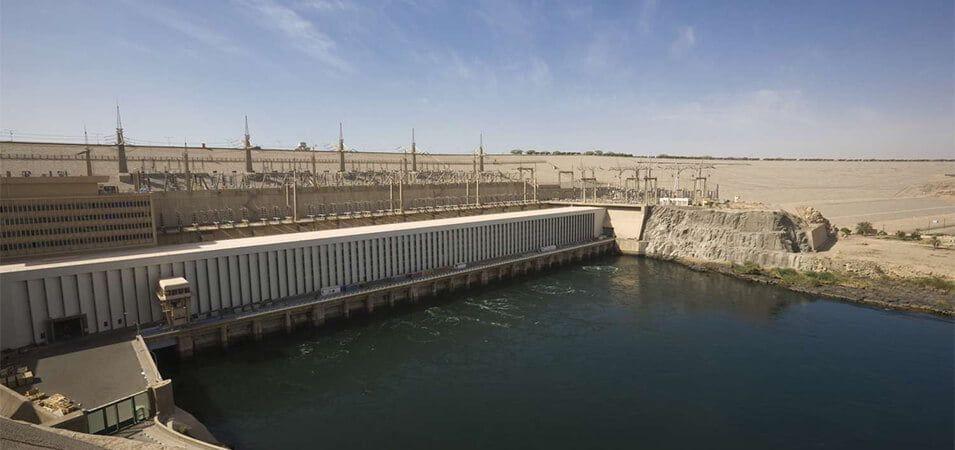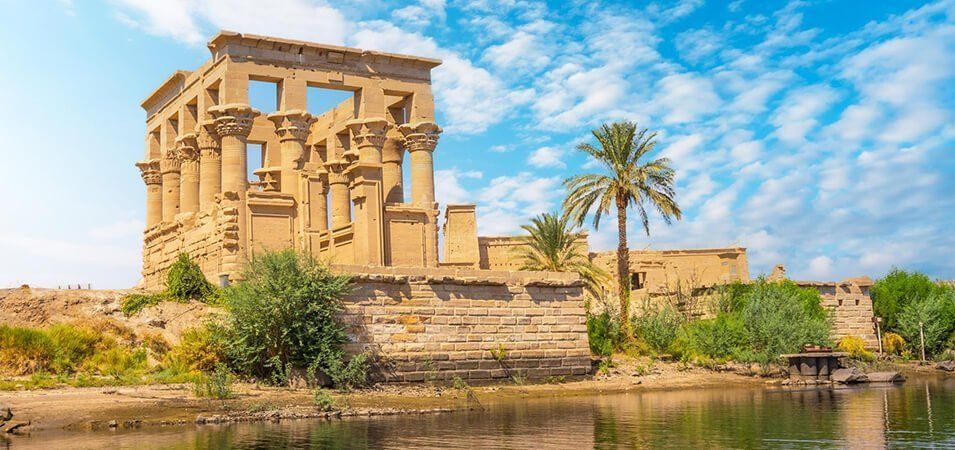The High Dam in Aswan, Egypt, is an excellent example of how clever people can be and how fantastic engineering can be. It is right on the Nile River. This vast building has not only used the power of the Nile, but it has also been a crucial part of Egypt’s economic growth. In this piece, we’ll talk about the High Dam’s exciting history, how it was built, and what it means. We’ll also talk about its many effects on the area.
Don’t miss checking out our article :
The Importance of the Nile River

- Egypt values the Nile in numerous ways. Its impact on the nation’s history, culture, and economics is significant. Egypt has valued the Nile for millennia as one of the world’s greatest rivers. The Nile River shaped ancient Egyptian society. Annual river flooding leaves rich silt along its banks. This made riverbanks farmable. The Nile powered ancient Egyptian wheat, barley, and flax irrigation systems. There was enough food for an expanding population and a wealthy civilization.
- The ancient Egyptians valued the Nile River morally and spiritually. People believed the river was a gift from God that provided food and life. People thought the country was prosperous and fresh because of the annual flooding that Hapi caused. Egyptian industry relies on the Nile River and its history and culture. A vital transit artery, the river moves people and products across the country. Egypt may trade with other nations and access the global market via the Mediterranean Sea.
- Egypt still relies on the Nile for cultivation. River water aids the country’s agriculture by watering crops. Egypt is termed the “gift of the Nile” because its waters have sustained its farming and economy. Egypt’s tourism benefits from the Nile. The Nile attracts tourists worldwide because of its beauty and proximity to Luxor and Aswan. Nile cruises are a popular way for travelers to explore Egypt’s history and natural beauty.
The Need for a Dam
With more people and more demand for water and power, it was clear that a dam was needed. The High Dam was built to control the flow of the Nile, reduce the chance of flooding, and provide a stable, controlled water source for agriculture, industry, and homes.
Planning and Construction of the High Dam
From 1960 to 1970, Egyptian President Gamal Abdel Nasser oversaw the planning and building of the High Dam in Aswan. Several countries worked together on the project, and the Soviet Union helped with professional and financial support.
Irrigation and Agricultural Advancements
By controlling the flow of the Nile, the High Dam has changed how Egypt grows crops. The dam ensures a steady water flow so farmers can work their land all year. This has led to higher crop yields, a wider variety of crops, and more food security for the whole country.
Navigational Improvements
The High Dam has made it easier and faster to travel along the Nile by making it easier to navigate. By controlling the water levels, the dam has created a dependable and predictable waterway that ships and barges can use. This has helped trade and brought people living along the river together.
Tourism and Recreation of the High Dam
The building of the High Dam has also made the area a more popular place to visit. People come to see the fantastic building and the beautiful views of Lake Nasser. The dam has become a famous site that brings people worldwide to see its beauty and learn about its history.
Economic Development and Employment Opportunities
The High Dam has been a significant part of Egypt’s economic growth. The energy has been used to power businesses, leading to development and investments. Also, while the dam was being built and in industries like tourism, farmland, and manufacturing, jobs were created, which helped the local communities.
Cultural and Historical Significance of the Hogh Dam
Besides being useful, It is also very important from a cultural and historical point of view. It shows that Egypt has become more modern and can use nature for the good of society. The dam serves as a memorial to the Egyptians’ outstanding engineering achievements and as a reminder of their long history.
Challenges and Maintenance of the High Dam
Keeping the High Dam in good shape takes work. Regular monitoring and repair are needed to keep an eye on sediment buildup, erosion, and structural integrity. Also, the dam’s effects on countries and ecosystems downriver make it important for Nile Basin countries to work together and handle the dam well.

FAQs to the High Dam
Can I visit the High Dam in Aswan?
You can go to the High Dam, allowing you to see this fantastic engineering feat up close.
How long did it take to build?
The High Dam was built between 1960 and 1970, about ten years ago.
Does it provide electricity to other countries?
A: Egypt is the main user of the energy that is made. But there will be talks about sending energy to nearby countries in the future.
What is the impact of the High Dam on agriculture?
The High Dam has greatly helped agriculture by ensuring a steady water flow for irrigation. This has led to more crops and better food security.
Has the High Dam caused any adverse environmental effects?
Although the High Dam has brought many benefits, it has also changed how the Nile flows naturally, affecting the environment and sedimentation patterns further downstream.
Conclusion
The High Dam in Aswan, Egypt, is a fantastic feat of building. It harnesses the power of the Nile River, which has changed the area and helped Egypt grow. It has considerably affected power production, irrigation, navigation, tourism, and economic growth. It is a shining example of a significant infrastructure project that shows how determined a country is to shape its future and ensure its people have a good life.
